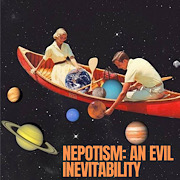|
for some reason this conversation reminded me that there's a refugee football club called AEK Athens that came from Istanbul, or was founded by refugees from there, I forget which heavy
|
|
|
|

|
| # ? May 27, 2024 22:58 |
|
Mad Hamish posted:From where? I know some people that'd make an amazing gift for. Honestly I can't give a great recommendation for a place to buy them. I'm in low end jewelry primarily so I only see ancient jewelry in passing at gem shows. Christies occasionally has nice pieces that go for below two thousand dollars (though obviously they're a higher end auction house and a lot of their things go for a TON). It's fun to browse the site, but here are a few examples. A lot of people also buy individual ringstones or cameos (Romans friggin' LOVED cameos) for cheap and have a modern jeweler set them as well. Carved scarabs were the tourist kitsch of the ancient world so there's a lotta ancient scarabs too. And of course, people will make jewelry out of any other common Archetypal Roman Stuff you can pick up, like coins or individual scales off of a lorica squamata. Some people on etsy have artifacts of varying authenticity. I am totally not an expert in identifying ancient artifacts, but this one https://www.etsy.com/listing/248442156/roman-key-ring-from-ancient-rome-1st-3rd looks more legit to me than say this one https://www.etsy.com/listing/601956443/authentic-bronze-roman-ring-rare-acorn Since with the latter guy I can tell he's getting gems and minerals wrong on other items in his shop.
|
|
|
|
Sorry, bit late on this, but the Druids weren't so much suppressed as they simply lost their monopoly on law giving, dispute resolution, and pretty much everything else that they did in Celtic society. They just became less and less relevant over time as the Celtic gods were syncretized into Roman religion and Roman laws and governance took their place. The idea that they were especially awful because of their human sacrifice is a) kind of bullshit given that the Romans were quite happy to throw people into the arena, b) a moralizing device that a few Romans used to castigate Celtic culture and by extension Romans that admired or adopted aspects of Celtic culture.
|
|
|
|
the romans really did not like celtic or germanic culture. they found them unnerving and excessively macabre. they never really got over brennus sacking rome or having to fight off big tribal confederations trying to move into italy a few times - even (perhaps especially) in the late period of the western empire, they were still prejudiced against expressions of celtic/germanic culture like mustaches and pants so yeah, while the druids weren't like, purged, they were absolutely made irrelevant as fast as possible to try to get people to stop hanging skulls everywhere
|
|
|
|
|
The Romans were split between hating the gauls as a threat to Roman culture that needed to be destroyed and galloweebs who thought their styles were real cool and they were otherwise fine. Which seems like a pretty common way for a society to respond to a new foreign society that it's interacting with more closely than it did before. Luckily for the gauls, Caesar only destroyed them a little.
|
|
|
|
Has anyone ever made a connection between Roman propaganda that depicted Carthaginians as human sacrificers and Celts as human sacrificers?
|
|
|
Teriyaki Hairpiece posted:Has anyone ever made a connection between Roman propaganda that depicted Carthaginians as human sacrificers and Celts as human sacrificers? well this was not like, something that rome said about every culture they ever fought with. it wasn't a standard propaganda item. here's the thing. even the romans were known to indulge in a little bit of human sacrifice if they felt their back was really, really against the wall, despite generally abhorring the practice. and guess who got put up against the wall by caesar? it would be more surprising if the gauls hadn't done a sacrifice or two, especially during the phase of the conquest where vercingetorix was leading a last stand. rome never really engaged in an apocalyptic conquest of quite the same scale either before or after the conquest of gaul - folks like the greeks didn't feel like their way of life was at stake, just their sovereignty. so, no sacrifice. the carthaginians on the other hand are one of the few cultures in the world where we know that they did practice human sacrifice in a more systematic way, although probably not the gleeful roasting of hundreds of infants at a time that the romans liked to portray. or, at least, the ancestors of the carthaginians did - human sacrifice runs pretty deep throughout the old testament, which is ultimately the only detailed view into phoenician religious practices that we have, given that judaism is likely a monotheistic splinter from the polytheistic phoenician religion. there are some pretty strong indications that the carthaginians kept up this practice at least for a while after leaving canaan for carthage but the timing on when/if they stopped is an old archaeological dispute that seems unlikely to be conclusively resolved. Jazerus fucked around with this message at 06:16 on Apr 1, 2020 |
|
|
|
|
We know the Celts practiced human sacrifice, or at least some did, because we have archaeological evidence of it. In Ireland, there are the so called "bog bodies", who appear to have been ritually killed.in what certainly appears to be human sacrifice. We have pretty good evidence that the Carthaginians did too. In Carthage, Malta, Sicily, and Sardinia, we've found what appear to be large scale cremations of infants along with dedications to the gods. Could they just be graves for infants who died of other causes? Maybe. But given that Hebrews, Greeks, and Romans all said that Phoenician gods received the sacrifice of children, and given some of the inscriptions and that there seem to be a lot of remains there, it seems very possible.
|
|
|
|
Lol in my ancient near eastern religion class one of the authors said basically 'depictions in thr old testament of other religions as engaging in human sacrifice are clearly just propaganda. How, uh, ironic that Jews would later be subjected to blood libel.' Seemed like he might have had some unfortunate sentiments re:Jews.
|
|
|
|
Jazerus posted:judaism is likely a monotheistic splinter from the polytheistic phoenician religion
|
|
|
|
Scarodactyl posted:Lol in my ancient near eastern religion class one of the authors said basically 'depictions in thr old testament of other religions as engaging in human sacrifice are clearly just propaganda. How, uh, ironic that Jews would later be subjected to blood libel.' Seemed like he might have had some unfortunate sentiments re:Jews. it gets worse, there's someone out there who believes all early modern accounts of cannibalism are either propaganda or hearsay
|
|
|
|
HEY GUNS posted:it gets worse, there's someone out there who believes all early modern accounts of cannibalism are either propaganda or hearsay You mean the ritual consumption of human remains for medical reasons?
|
|
|
|
I mean in some cases irt human sacrifice it is from my perspective hard to know for certain. I mean if you took someone to a hanging in the old west circa 1880. You would have people praying, partying and your killing someone is a specific manner, usually on a set date by specialists. It could look an awful lot like a ritualistic sacrifice to their god(s) from an outside observer perspective when its a more mundane reason (he stole a horse).
Jack2142 fucked around with this message at 08:27 on Apr 1, 2020 |
|
|
|
Epicurius posted:We know the Celts practiced human sacrifice, or at least some did, because we have archaeological evidence of it. In Ireland, there are the so called "bog bodies", who appear to have been ritually killed.in what certainly appears to be human sacrifice. We have pretty good evidence that the Carthaginians did too. In Carthage, Malta, Sicily, and Sardinia, we've found what appear to be large scale cremations of infants along with dedications to the gods. Could they just be graves for infants who died of other causes? Maybe. But given that Hebrews, Greeks, and Romans all said that Phoenician gods received the sacrifice of children, and given some of the inscriptions and that there seem to be a lot of remains there, it seems very possible. I'm not sure when the druids were supposedly active and sacrificing folks, but Scandinavian shaman or priests were definitely sacrificing humans beween at least 300 and up to 1100.
|
|
|
Jack2142 posted:I mean in some cases irt human sacrifice it is from my perspective hard to know for certain. I mean if you took someone to a hanging in the old west circa 1880. You would have people praying, partying and your killing someone is a specific manner, usually on a set date by specialists. It could look an awful lot like a ritualistic sacrifice to their god(s) from an outside observer perspective when its a more mundane reason (he stole a horse). Oh, so hazing might be seen as ritualistic human sacrifice someday?
|
|
|
|
|
So babies died all the time. You may as well “sacrifice/dedicate” a dead baby and toss it on the pile. Seems like a waste of a giant effort if you do toss a good baby away.
|
|
|
|
It always kind of weirded me out that a society that was so against human sacrifice was so comfortable with, say, infant abandonment. Sort of seems like the same thing morally from my modern point of view? The Romans also did sacrifice on super rare and desperate occasions - that speaks to me less that they thought it was barbaric superstition and more that they were afraid it worked.
|
|
|
|
HEY GUNS posted:if true that's cool as heck. is there a book i can read about this? Someone recommended The Bible and the Ancient Near East by Cyrus Gordon and Gary Rendsburg to me on similar topics. It covers development of the various books and what is known about the history and context where they were written. It focuses on the development of Judaism so unfortunately isn't focused on ancient Phoenician polytheism, but it does cover it somewhat.
|
|
|
|
I'd say that the top three most brutal Roman wars are the extermination of Carthage, the putting down of the Jewish rebellions, and Caesar's conquest of Gaul. I've heard that conquest and rebellions in Iberia got pretty intense a few times, but I don't know any details. The Pax Romana was impressive, but it was bought with a lot of blood. Although it's debatable how many wars the conquered territories would've gotten into if they hadn't been pacified by Rome's almost industrial level of violence. Triskelli posted:Oh, so hazing might be seen as ritualistic human sacrifice someday? It sort of is. Or at the very least, there's the general principle of valuing ritualized suffering over the lives of the victims, which can spiral wildly out of control. I don't know if any fraternities or whatnot cover their hazing in any kind of mysticism.
|
|
|
|
I listened to a podcast on Josephus and a while back and it sounds like the Jews were a big part of the brutality in the Jewish Wars. The Roman legions didn't even show up until the last couple years of the conflict. It was mostly pro-Roman and anti-Roman local forces having it out in an extremely bitter conflict.
|
|
|
|
CoolCab posted:It always kind of weirded me out that a society that was so against human sacrifice was so comfortable with, say, infant abandonment. Sort of seems like the same thing morally from my modern point of view? That's the danger of using a modern point of view. We can argue that there's no real difference, and there's certainly reason to think that way, but the Romans thought they were completely different things. You can ask whether or not the evidence we have suggests they were rationalizing or if they genuinely saw these as 100% distinct, but to apply our morals doesn't get you anywhere. There were Roman morals that are mostly the same as ours and you can compare. Just straight up murdering someone for example was as unacceptable to Romans as it is to us. Human sacrifice, though, is an area where we have nothing morally equivalent today and the Romans themselves were inconsistent on, so it's a complex topic.
|
|
|
|
Grand Fromage posted:That's the danger of using a modern point of view. We can argue that there's no real difference, and there's certainly reason to think that way, but the Romans thought they were completely different things. You can ask whether or not the evidence we have suggests they were rationalizing or if they genuinely saw these as 100% distinct, but to apply our morals doesn't get you anywhere. There were Roman morals that are mostly the same as ours and you can compare. Just straight up murdering someone for example was as unacceptable to Romans as it is to us. Human sacrifice, though, is an area where we have nothing morally equivalent today and the Romans themselves were inconsistent on, so it's a complex topic. Sure, and that's why I add the caveat. When I look at child abandonment, or blood sports* or public executions via lions I would probably evaluate them on the same moral level as human sacrifice, but I do appreciate that it wouldn't have seemed that way to someone from the period. *with the understanding that not every gladiatorial combat was fatal etc etc
|
|
|
|
I think it's more of a lens of culture rather than one of time, because didn't the Egyptians also see child abandonment as monstrous and even rescue Greek children who were being exposed?
|
|
|
|
Yeah but I’ve seen some temple art showing a banquet where kids where literally blowing the diners so I don’t think they had that much better morals. It was on display at the De Young Musuem for a special exhibit on sex through civilization. I recall them pointing out that the hair styles represented children as opposed to just small representation of adults in the scene.
|
|
|
SlothfulCobra posted:I'd say that the top three most brutal Roman wars are the extermination of Carthage, the putting down of the Jewish rebellions, and Caesar's conquest of Gaul. I've heard that conquest and rebellions in Iberia got pretty intense a few times, but I don't know any details. Germanicus' campaigns in Germany wasn't a picnic either: Tacitus posted:The enemy were slaughtered from the fifth hour of daylight to nightfall, and for ten miles the ground was littered with corpses and weapons.
|
|
|
|
|
Terrible Opinions posted:I think it's more of a lens of culture rather than one of time, because didn't the Egyptians also see child abandonment as monstrous and even rescue Greek children who were being exposed? I read an argument recently that a very large proportion of exposed children all across the Roman world were "rescued" at least in the Imperial period. I have to put rescue in quotes because the argument here was that these children were enslaved, and that the mass enslavement of abandoned children was the only way Rome was able to maintain its slave population for much of its history. Although at the same time there was a major gender imbalance in the slave population with a much larger share of males than we would expect due to chance, which might suggest female children were disproportionately allowed to die rather than enslaved.
|
|
|
|
SlothfulCobra posted:I'd say that the top three most brutal Roman wars are the extermination of Carthage, the putting down of the Jewish rebellions, and Caesar's conquest of Gaul. I've heard that conquest and rebellions in Iberia got pretty intense a few times, but I don't know any details. I dunno, didn't go down well for Spartacus' crew in the end, and slave rebellions historically tend to absolutely freak the gently caress out of slaveowning societies.
|
|
|
|
I recall reading that most of how we culturally think of children today, as endless potential and a source of purity that deserves to be protected is a more modern romanticism, and at least in the medieval era there was the idea floating around that children were naturally wicked things that needed to be given strict discipline. Pragmatically, outside of familial love and basic instincts to protect the helpless, I can see it being easier to give up children that haven't spoken yet and don't have much sunk cost in them. If they've got some kind of horrible medical issue, it might even plausibly be a mercy to do away with them sooner rather than trying to tough it out and slowly dying over time. feedmegin posted:I dunno, didn't go down well for Spartacus' crew in the end, and slave rebellions historically tend to absolutely freak the gently caress out of slaveowning societies. I wouldn't put it in the same category just because it is the natural and logical extension of the incredibly brutal practice of slavery that spanned the empire. It's just slaughtering slaves all at once for being a risk instead of slowly killing them in the mines.
|
|
|
Squalid posted:I read an argument recently that a very large proportion of exposed children all across the Roman world were "rescued" at least in the Imperial period. I have to put rescue in quotes because the argument here was that these children were enslaved, and that the mass enslavement of abandoned children was the only way Rome was able to maintain its slave population for much of its history. Although at the same time there was a major gender imbalance in the slave population with a much larger share of males than we would expect due to chance, which might suggest female children were disproportionately allowed to die rather than enslaved. maybe this happened sometimes, but as a widespread institution? doubtful imo. rome really didn't maintain its slave population after a certain point! once the conquests stopped, war slaves slowed to a trickle and the slave population began to decline through manumission. certainly by the time of the tetrarchy slave labor was a relative rarity compared to free labor. or, well, "free" labor - the roots of serfdom are laid down in this time period, restricting the average free person's rights to a status somewhere between free and slave.
|
|
|
|
|
Jazerus posted:maybe this happened sometimes, but as a widespread institution? doubtful imo. rome really didn't maintain its slave population after a certain point! once the conquests stopped, war slaves slowed to a trickle and the slave population began to decline through manumission. certainly by the time of the tetrarchy slave labor was a relative rarity compared to free labor. or, well, "free" labor - the roots of serfdom are laid down in this time period, restricting the average free person's rights to a status somewhere between free and slave. well I'm not certain how reliable my source is, but it does provide sources and quotes directly from both primary and secondary authors. here are some quotes on the subject: http://factsanddetails.com/world/cat56/sub369/entry-6302.html quote:John Madden of the University College Galway wrote: “The abandonment of infants was widespread over much of the Roman world, and, no doubt, occurred even more frequently whenever circumstances became especially difficult. The custom was not made illegal until A.D. 374. Abandoned children usually either died or were made slaves, but the percentage in each group is beyond recall. In the case of the latter the owners themselves sometimes found the infants (either by accident of design); at other times they received them from finders who knew of their need. But there are also signs in the papyri of the availability of infants on request i.e. that individuals who were part of the slave trade nexus either collected abandoned babies for later sale themselves or bought them from others who found them. Sometimes owners engaged nurses under contract (a number of the relevant documents survive among the papyri) to look after foundlings in their early months. Occasionally foundlings were recovered by their parents. At other times if they could provide proof of their original citizen status and obtain a champion - an assertor - they could themselves initiate legal proceedings. [Source: “Slavery in the Roman Empire Numbers and Origins” by John Madden, University College Galway, Classics Ireland, 1996 Volume 3, University College Dublin, Ireland ~~] Looking at this quote again I suspect the papyri described herein were from Roman Egypt, so they could reflect a particularly Egyptian tendency to save abandoned children. Still, the article goes on to say this: quote:“Granted all of this, how important are we to rate foundlings as a slave source? Here we may recapitulate and conclude. When Tiberius and his successors followed in general Augustus' advice of confining the empire within its present frontiers, one of the principal sources of slaves i.e. prisoners of war, seriously decreased. However, as far as we are aware, no major emergency in the replenishment of slave numbers occurred. The reason surely is that the considerable range of other slave sources already available were together able to make up sufficiently for the shortfall. Yet, of these sources, only two, vernae and foundlings, could, we are convinced, have been major contributors. Vernae certainly were important, yet, if the arguments and estimates given above are sound, vernae would have fallen well short of supplying the full yearly requirement. That leaves foundlings. Since we know that child exposure was a widespread phenomenon - urban as well as rural - over a considerable section of the Greek world, Asia Minor, Egypt, Italy and elsewhere in the West, we may conclude that enslaved foundlings were more or less able to make up for the shortage in the slave supply caused by the drop in the numbers of prisoners of war in the first century and a half of the empire - a shortage which vernae and the other sources could not offset." ~~
|
|
|
|
Triskelli posted:Oh, so hazing might be seen as ritualistic human sacrifice someday? I mean if in TYOOL 4000 A.D. and the only surviving records is a fragment of a book on a hazing incident which killed someone sure and the preserved body of a dead frat bro who drank himself to death. I'm not trying to say human sacrifice never ever happened, but in some cases I am unsure of if it was commonplace and many accusations are misunderstandings of executions etc. Jack2142 fucked around with this message at 21:21 on Apr 1, 2020 |
|
|
|
Arglebargle III posted:I listened to a podcast on Josephus and a while back and it sounds like the Jews were a big part of the brutality in the Jewish Wars. The Roman legions didn't even show up until the last couple years of the conflict. It was mostly pro-Roman and anti-Roman local forces having it out in an extremely bitter conflict.
|
|
|
|
SlothfulCobra posted:Pragmatically, outside of familial love and basic instincts to protect the helpless, I can see it being easier to give up children that haven't spoken yet and don't have much sunk cost in them. If they've got some kind of horrible medical issue, it might even plausibly be a mercy to do away with them sooner rather than trying to tough it out and slowly dying over time. So instead they're given a quick and merciful death by exposure?
|
|
|
|
Wasn't here a Roman Emperor that died and his entourage tried to hide it till the smell of his rot was too strong to ignore?
|
|
|
|
Numerian. Though the story is disputed.
|
|
|
|
Grand Fromage posted:Numerian. Though the story is disputed. Gibbon challenged it on the grounds that the Imperial household would've had aromatics to hide the smell. I question how well whatever aromatics the conspirators might hypothetically have had would cover a sufficiently decayed corpse. It's such a bizarre, ridiculous incident in a period where emperors were regularly hacked to bits by their own troops (and it's not taken solely from the Historia Augusta) that I can't bring myself to be skeptical of it.
|
|
|
|
I swear the same story happened in China too, but I forget who. It's certainly not absurd as weird emperor stories go.
|
|
|
|
Wafflecopper posted:So instead they're given a quick and merciful death by exposure? well according to those quotes I posted, there is a good chance exposed children would not die. Certainly the idea of exposed children being taken in is supported by Greek myth and literature. For parents who can't bring themselves to kill the child directly it would have been a way to at least give it a chance to live, however small.
|
|
|
|
That as Qin Shi Huangdi. Seems historically accurate that he was not interred in his tomb until about nine months after his death but I don't know if that means his corpse was rotting above ground.
|
|
|
|

|
| # ? May 27, 2024 22:58 |
|
I have read that the romans had access to a herbal contraceptive in the form of silphium, until they accidentally drove it extinct. Is this bullshit? If not, why was exposure neccesary to much of a degree?
|
|
|










































